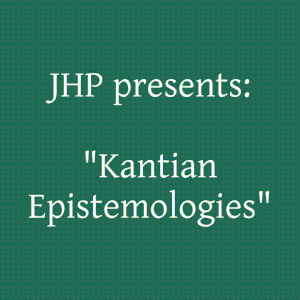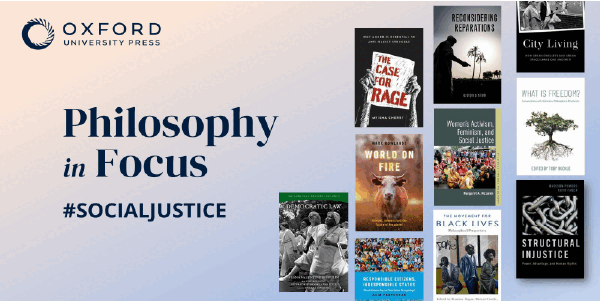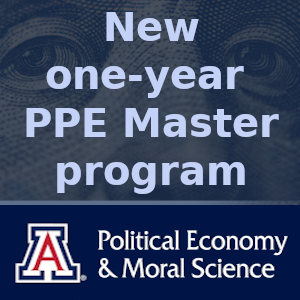Free thought unwelcome in the Academic Humanities - Kershnar Cycle Reactivated
Published by Reblogs - Credits in Posts,
Kershnar Cycle Reactivated (several updates) | Daily Nous
Kershnar Cycle Reactivated (several updates)
Every few years, it seems, someone new will learn of the work of philosopher Stephen Kershnar (SUNY Fredonia), share their shock, amusement, or outrage about it on social media, and cause a brief spike in amazed, angry, or humorous commentary about it. Then people move on and tend to forget about it… until someone new learns of it and just has to share it. Call it the Kershnar Cycle.
Kershnar Cycles, like hurricanes, come in varying strengths. Typically they’re initiated by a philosopher and their reach does not extend much beyond other philosophers, and so they’re mild. This time, however, it’s more severe, as the cycle appears to have been initiated by a very popular social media account, @LibsofTikTok, which shared a selectively edited video of an interview with Kershnar, titles of some of his articles, and called for him to be fired.

This has led to a storm of stupid and uninformed condemnation that is now raining hate upon our colleague and putting SUNY Fredonia’s administration under a high degree of pressure to act. The president of the university, Stephen Kolison, has now issued a statement saying that "the views expressed by the professor are reprehensible and do not represent the values of SUNY Fredonia in any way, shape, or form." But it’s not clear that Kolison knows what Kershnar’s views are.
Kershnar has made a career of being a Socratic gadfly, inquiring in a very traditional philosophical way about beliefs many tend to take for granted. He often focuses on beliefs the denial of which would be thought of as outrageous, and raises problems for their justification, or shows how rather unpopular beliefs might be justifiable. You can browse some of his works here.
The fuss this time concerns Kershnar’s writings about the basis of prohibitions regarding sex between adults and children. I have not read his book on the topic, but it appears that Kershnar raises problems for the justification of those prohibitions. He says, "The sex intuitively strikes many people, including myself, as sick, disgusting, and wrong. The problem is that it is not clear whether these judgments are justified and whether they are aesthetic or moral." Kershnar appears to argue that prohibitions on adult-child sex cannot be justified on the basis of consent (or its absence). As it’s rather common to explain the wrongness of sex between adults and children in terms of the childrens’ lack of or inability to consent, Kershnar is indeed taking aim at a rather popular view. But the upshot of this is not that sex between adults and children is permissible. Rather, Kershnar seems to be saying, prohibitions against adult-child sex are better grounded on the harm such sex involves, or the harms that might be brought about by not prohibiting it. He also appears to withhold judgment on the question of whether all such instances of sexual activity are necessarily harmful.
Of course, regardless of what one may think of his conclusions, Professor Kershnar’s work is professional and protected by academic freedom and freedom of speech. He quite clearly ought not be fired.
Raising questions about sacred beliefs is one of the ways philosophy is especially valuable. That Kershnar has dedicated his career to this value (in ways that may have been personally or professionally costly to him) gives his fellow philosophers a further reason, apart from academic freedom, to defend him, even if they disagree with his conclusions or dislike his mode of argumentation.
UPDATE 1 (2/3/22): Fredonia President Stephen H. Kolison, Jr. this afternoon announced that "effective immediately," Professor Kershnar "is being assigned to duties that do not include his physical presence on campus and will not have contact with students while the investigation is ongoing." Professor Kershnar was informed of this via the university’s office of human resources, in a letter that says:
Effective immediately and until further notice, pursuant to Article 19.11(c) of the Agreement between the United University Professions and the State of New York, you are to perform an alternate work assignment from an alternate location. During your alternate assignment, you are directed not to be on college property, or have contact with the campus community, except for the following: Human Resources, Dean Karafa, Provost Starrett, University Police, and your union representative. If you need to interact with other members of the campus community, you must first contact the Director of Human Resources, in writing, with your request and wait for approval to proceed.
In the meanwhile, Kershnar has been receiving a significant amount of hate mail.
UPDATE 2 (2/3/22): For those curious, here is a summary of Kershnar’s views about the topic of the legality and morality of adult-child sex, based on materials he sent me (the material in quotes is directly from his book):
-
- There are good reasons to think that adult-child sex should be illegal.
- Consequentialist moral theories can provide an explanation for the wrongness of adult-child sex that is harmful, and while "when both participants are willing, the risk of long term harm is unclear," at least "in some cases (for example, force, genital contact, and father figures) there is risk of significant harm." "Child rape and incest both… are extremely harmful."
- On non-consequentialist moral theories, the moral status of adult-child sex is unclear.
UPDATE 3 (2/4/22): The Academic Freedom Alliance, an organization that "will in appropriate circumstances aid in providing legal support to faculty members whose constitutionally, statutorily, contractually, or other legally protected rights to academic freedom have been violated or are under threat," has written a letter to the administration of SUNY Fredonia in support of Professor Kershnar. An excerpt:
Professor Kershnar’s scholarly research and teaching on these topics is fully protected by principles of academic freedom and his public discussion of his ideas on these issues is protected by principles of freedom of speech. There is, quite simply, nothing for the university to review under these circumstances. The university’s obligation in the face of this controversy is to provide a forum in which ideas, however extreme or misguided they may be or seem to be, can be articulated, criticized, and fairly debated. A member of your faculty under such public scrutiny is likely to be targeted for abuse and threats, and the university’s responsibility is to shelter the faculty member from that harassment and not add to it.
The full letter is here.
UPDATE 4 (2/4/22): The Foundation for Individual Rights in Education (FIRE) has sent a letter to the president of SUNY Fredonia, Stephen Kolison, in defense of Professor Kershnar. Some excerpts:
Kershnar’s statements are protected by the First Amendment, which prohibits SUNY Fredonia from taking adverse action against faculty members for protected speech, however provocative or offensive it may be to others. By banning Kershnar from campus and initiating disciplinary procedures, including an "interrogation" of Kershnar or "review" of his extramural statements, SUNY Fredonia is in violation of the First Amendment…
Some might charge that Kershnar’s views, if adopted, would be dangerous or lead to the erosion of laws criminalizing sexual abuse of minors. For his part, Kershnar’s writing on the subject has argued that sexual conduct with minors should be criminalized. His arguments generally concern why such conduct should be criminalized, with a critical evaluation of whether morality—as distinct from other reasons to prohibit it—is alone sufficient to impose criminal sanctions. Yet even if Kershnar’s critics are correct in their estimation of his argument, Kershnar’s speech would still be protected by the First Amendment…
We urge you to avoid effectuating a heckler’s veto by returning Kershnar to the classroom and publicly committing to protect the First Amendment rights of your faculty.
You can read the whole letter here.
UPDATE 5 (2/4/22): The SUNY Fredonia Faculty Senate will consider a resolution on Monday that "condemns Prof. Kershnar’s statements on sex with children in the strongest possible terms, finding them morally reprehensible and irresponsible." Further details here.
UPDATE 6 (2/4/22): The hosts of Brain in a Vat, the philosophy program whose interview with Kershnar provided the material from which the viral clip of him talking was assembled, have posted a video statement about the episode. An excerpt:
He has published work saying that pedophilia should be illegal, and yet he is at the same time saying that we need to understand precisely why, and some of the common reasons that are given are not convincing enough. So Stephen is pushing us to understand why we hold such strong views on certain things, and that is really at the heart of analytic philosophy as it is applied to applied ethics and our values in our everyday lives.
While YouTube has removed the original interview with Kershnar from its site, you can listen to the whole interview here.
Sub-update 6: YouTube reversed its decision about the podcast and you can view it here.
UPDATE 7 (2/4/22): A letter from faculty at several institutions to SUNY Fredonia President Stephen Kolison, and which is open for others to sign, has been posted by FIRE here. An excerpt:
Although you have described the video podcast as "widely shared," in fact the podcast in which Professor Kershnar discussed arguments on ethical issues relating to sexual contact with children has not been widely viewed. What has been widely shared is a brief clip from the podcast. Universities should be places where scholars can safely engage in the task of carefully thinking through the logic and implications of arguments about ethical human behavior, and that is what Professor Kershnar and his interlocutors do in this podcast. Society will be impoverished if such inquiries cannot take place and if ideas about morality are suppressed and censored because they are unpopular or offend the sensibilities of the broader public.
The whole letter is here.
UPDATE 8 (2/4/22): In response to some emails, I thought I would share some thoughts on what Kershnar says in the podcast.
For one thing, the summary that Professor Kershnar provided (in update 2, above) of his views (which, based on excerpts of his work he also provided, seem to represent what he has written on the subject) may not function especially well as a summary of what he says in the podcast. What he says in the podcast appears to be that adult-child sexual activity is wrong either when it is against the will of the child or when it involves harm to the child. However, he says, it is not necessarily or always the case that such activity is against the will of the child and it it is not necessarily or always the case that it is harmful. His view, then, is that a blanket claim that adult-child sex is wrong is mistaken. If it turns out that most incidences of adult-child sex are against the will of the children or harmful to the children, then most incidences of adult-child sex would be wrong, but ultimately, according to Kershnar, this depends on at least partially empirical facts about willingness and harm, and these facts may vary across cases and across cultures. Child rape is always wrong, he says. What about the legality of adult-child sex? While in his book he says that the balance of reasons favors "the criminalization of willing adult-child sex," this view does not come through clearly in the podcast. In the podcast, he says that in cases in which the reasonability of a legal prohibition of some act depends on certain facts, and there is uncertainty about those facts, then the act ought not be legally prohibited. Since Kershnar seems to voice some skepticism about some facts regarding the harmfulness of some instances of adult-child sex, it would not be unreasonable for a listener to think that he is suggesting that not all adult-child sex should be illegal. Is he suggesting that? In the podcast, it just isn’t clear.
The foregoing is a charitable sorting through of various claims made during the podcast, which was a fast-paced discussion taking place against a fair amount of background knowledge about moral philosophy and in a style familiar to philosophers but likely rather strange sounding to others. Additionally, being a live unscripted conversation, not everyone is always saying exactly what they mean, yet being a conversation among philosophers, the discussants often nonetheless hear what is meant rather than what is said, which a listener less familiar with the conversational norms of philosophers might find confusing at times. Further, the podcast itself is rather choppily edited. So, while there has been a ton of "stupid and uninformed condemnation" (quoting myself there) of Kershnar, this shouldn’t be taken to imply that all such condemnation is stupid and uninformed. I ought to have been more careful in how I put that.
While the discussion in the podcast was interesting, it was also, in my view, philosophically unsatisfying. In part this is because it relied on a rather narrow and sociologically and psychologically impoverished account of the kinds of harms worth thinking about, and a very shallow and simplistic understanding of the ways that sex, and our thoughts about sex, might affect how well our lives go, and how they might structure society in ways that affect our well-being. In my view, the problem is not only that Kershnar underestimates the strength of certain reasons why we should think adult-child sex is immoral, some of those reasons he doesn’t consider at all. But I am not going to go into that further here.
I would like to thank Jean Kazez, who emailed me to complain about the accuracy of my description of Kershnar’s views. Her remarks prompted this update to the post. At the end of her message to me, she says, "I’d like to see a more accurate picture of what the guy said and then a defense of his right to say it!" Well, I’ve done the first part of that, and I don’t have much to add to the second beyond what has already been said by me and others about the protections that academic freedom and the First Amendment afford him—even if he thinks that not all adult-child sex is wrong.
That said, one might think Kershnar ought not get fired for his views and writings but still believe there are other relevant issues. For example, in an email to FIRE and the signatories of the letter it sent out this afternooon, Victoria Balfour, a sex abuse victim’s advocate, writes:
Because sexual abuse of children is so prevalent, it is a certainty that in his 23 years of college teaching… Mr. Kershnar has taught both male and female students who were sexually assaulted as children. There is a strong possibilty that some of his current students were sexually assaulted. Can you step into the shoes of these students for one minute to understand the impact of Mr. Kershnar’s remarks on their psyche? Did anyone in your organization take into consideration the fact that in all likelihood Kersnar has taught and is teaching students who were sexually abused? Where is your defense of these students?
These are reasonable questions to ask, and I do hope they are taken up in a productive way by Professor Kershnar and his university after its investigation concludes.
UPDATE 9 (2/5/22): Some readers have asked why comments are closed on the posts about Kershnar. The short answer is that the volume and nature of the comments would make moderation of the discussion an extraordinarily onerous task.
Recent Comments
Subscribe
Archives
- February 2022
- January 2022
- December 2021
- November 2021
- October 2021
- September 2021
- August 2021
- July 2021
- June 2021
- May 2021
- April 2021
- March 2021
- February 2021
- January 2021
- December 2020
- November 2020
- October 2020
- September 2020
- August 2020
- July 2020
- June 2020
- May 2020
- April 2020
- March 2020
- February 2020
- January 2020
- December 2019
- November 2019
- October 2019
- September 2019
- August 2019
- July 2019
- June 2019
- May 2019
- April 2019
- March 2019
- February 2019
- January 2019
- December 2018
- November 2018
- October 2018
- September 2018
- August 2018
- July 2018
- June 2018
- May 2018
- April 2018
- March 2018
- February 2018
- January 2018
- December 2017
- November 2017
- October 2017
- September 2017
- August 2017
- July 2017
- June 2017
- May 2017
- April 2017
- March 2017
- February 2017
- January 2017
- December 2016
- November 2016
- October 2016
- September 2016
- August 2016
- July 2016
- June 2016
- May 2016
- April 2016
- March 2016
- February 2016
- January 2016
- December 2015
- November 2015
- October 2015
- September 2015
- August 2015
- July 2015
- June 2015
- May 2015
- April 2015
- March 2015
- February 2015
- January 2015
- December 2014
- November 2014
- October 2014
- September 2014
- August 2014
- July 2014
- June 2014
- May 2014
- April 2014
- March 2014
Heap of Links
- "That question just stuck with me… you could be doing a whole string of science based on a flawed metaphysical assumption… Someone needs to work on this" -- the "origin story" of philosopher Quayshawn Spencer (U. Penn)
- What are the rules for not being a "COVID jerk"? -- Eric Schwitzgebel (Riverside) lets us know
- Psychological research inspired by Parfit’s work on the connection between prudence, morality, and the metaphysics of the self -- some experiments "suggest that people who score high on the Future Self Continuity measure have higher moral standards"
- "What if animals do know what it means to die?" -- work in philosophy, psychology, and biology is helping us understand whether animals understand death (via Kris McDaniel)
- "It is the duty of philosophy to destroy the illusions which had their origin in misconceptions, whatever darling hopes and valued expectations may be ruined by its explanations" -- Immanuel Kant interviewed by Richard Marshall at 3:16AM
- What is gender? -- Robin Dembroff (Yale) in conversation with Justin E.H. Smith (Université Paris Diderot)
- "Liberal neutrality rests on substantive moral goods: moral relations between diverse persons" -- and not only is that not incoherent, argues Kevin Vallier (Bowling Green), it's part of neutrality's appeal
- "If you cannot do anything about what upsets you, you should attempt to free yourself from such negative emotions… If, by contrast, there is an opportunity for changing the distressing situation, then you should embrace the pain you feel and let it motivate you" -- Katharina Volk (Columbia) on how to make sense of Cicero's changing view of the emotions
- If "actions in virtual worlds will potentially be as meaningful as actions in the physical world," what ethics apply to them? What law? -- an excerpt from Reality+, the new book from David Chalmers (NYU)
- The new version of GPT, "InstructGPT," is better at following people’s instructions -- but "a byproduct of training our models to follow user instructions is that they may become more susceptible to misuse if instructed to produce unsafe outputs. Solving this requires our models to refuse certain instructions; doing this reliably is an important open research problem"
- "Why did Husserl begin thinking about movement?" -- Carrie Noland (UC Irvine), a professor of French and comparative literature, on her "adventure" looking into Husserl's influences and motivation
- At public schools, should students be taught "tolerance as non-disapproval" or "tolerance as forbearance"? -- there's controversy no matter what, argues Christina Easton (Warwick)
- "Well, I see metaphysics as ‘lifestyle’" -- Wilhelm Dilthey is "interviewed" by Richard Marshall at 3:16AM
- "‘Love Letters’ tells the tale of a white college [philosophy] professor named Anna Stubblefield and the black family whose lives she turned upside down when she helped teach their disabled son a controversial typing technique known as ‘facilitated communication’ but then took things too far" -- writer Andrew Bluestone has won a Humanitas Fellowship to work on this script
- "Much of our reasoning under uncertainty involves negotiating an accuracy-informativity tradeoff, and that this helps to explain a variety of patterns in the things people tend to guess, believe, and assert" -- Kevin Dorst (Pitt) & Matthew Mandelkern (NYU) on whether the conjunction fallacy is really a fallacy
- The song has lyrics from Wittgenstein and is dedicated to Rosalind Hursthouse -- it's by New Zealand's Karl Steven (of Supergroove), who took a break from his musical career to get a PhD in philosophy from Cambridge (via Yuri Cath)
- Amartya Sen on the memories that shaped his research -- in an interview on the radio show "Marketplace"
- "The philosophy of mind is not, pace so many of its contemporary exponents, an ethically neutral or ideologically innocent study. The philosophy of mind is a part of "human science"; politics has everything to do with it" -- Sophie-Grace Chappell (Open U.) argues that consciousness is both gendered and sexed
- "A life in VR could be just as meaningful as a life in the physical world" -- David Chalmers (NYU) in conversation with Evan Selinger (RIT)
- "Maintaining our punishing attitude towards plagiarism could reap benefits well beyond discouraging plagiarism itself" -- Stuart Ritchie (KCL) counters recent arguments for why we ought not care about plagiarism
- A philosophy PhD’s suicide and the mission of an academic organization with which many political philosophers have been involved -- the "existential struggle" taking place at Liberty Fund (via Chris Bertram)
- "All those yellow and green Wordle grids popping up on our screens give us a steady stream of small communions" -- C. Thi Nguyen (Utah) on how the popular word game provides moments of mutual understanding
- "The show… takes the form of a gathering of ‘radical fairies,’ who come together each year to mourn, and re-enact, the death of Socrates" -- a new jazz opera about the final hours of Socrates is opening in Manhattan
- "The defining characteristic of fiction is that it’s made up. So how can we learn from it?" -- that may sound like an easy puzzle to solve, but it's not, argues Amy Kind (Claremont McKenna) in her guest stint at The Splintered Mind
- "Likely the first book about moral philosophy to feature endorsements from Steve Carell, Amy Poehler, Ted Danson and Mindy Kaling" -- Michael Schur, the creator of the TV show "The Good Place," has written a book
- It’s "not about invincibility, but about vulnerability. And the role supportive others play in sustaining our resilience" -- one of several aspects of Stoicism discussed in an interview with Nancy Sherman (Georgetown)
- "If I am right, neither the science of physics, nor any other science, could express all the truths; but the world could nonetheless be wholly physical" -- Tim Crane (CEU) on the real lesson of Frank Jackson's famous Mary example
- What do you know about Nísia Floresta? -- Olivia Branscum (Columbia) speaks with Nastassja Pugliese (Federal Univ. of Rio de Janeiro) about the 19th C. Brazilian philosopher, her philosophy of education and her enlightenment critique of slavery and colonialism
- "Given that academic ethics is about ‘ethical fine tuning’ and that the academy remains disconnected from the government, the potential for ethicists to respond to the climate emergency within the limits of their job description is somewhat limited" -- Doug McConnell (Oxford) on the role of moral philosophers in regard to global warming
- "To prepare students to thrive in a world driven by science and policy, we need to incorporate philosophy in the classroom," especially philosophy of science -- so argue Nicholas Friedman (Stanford) & Stephen Esser (U. Penn) , who also provide links to lesson plans










